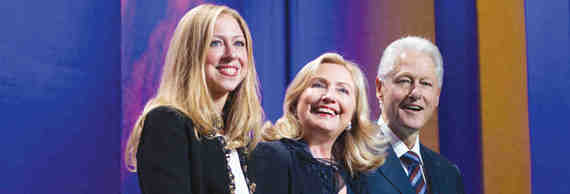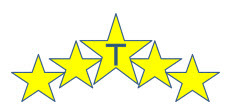The Clinton Foundation claims that it's committed to transparency - but clearly, it's not.
In its early days, the Clinton Foundation didn't disclose any of its donors, citing confidentiality agreements it had with them. Then, in 2008, under strong pressure, it changed tack and disclosed the names of its donors, a list that included some pretty unsavoury regimes and shady corporations. (The supposed confidentiality agreements were never mentioned again.)
The Clinton Foundation's financial disclosure was - and remains - limited. It only discloses contributions in broad cumulative multi-year funding brackets, making it impossible to tell who gave exactly how much, when, and for what purpose.
Among the Clinton Foundation's biggest donors is yet another foundation based in Canada. Who are that foundation's donors? Sorry, that information cannot be revealed under Canadian laws. Well, ok, we might have misinterpreted those laws. Here's the names of some of its donors, but not of all of the donors. Yes, among these newly disclosed donors are yet more foundations. Well, it's hardly our fault if they themselves do not fully disclose... it just goes on and on and on.
Actually, becoming transparent is not as difficult as it seems - it just requires political will.
Here's four simple steps the Clinton Foundation can take to demonstrate that it's finally getting serious about transparency.
1. Disclose all your funding to the 5-star transparency standard.
Disclose who gave how much, when, where, why and for what purposes. Do so retrospectively, for every single Clinton Foundation offshoot, for every single year. Publicly announce that you will do it now and then quickly follow up. If any donor insists you respect past confidentiality agreements, publish those agreements and state clearly next to that donor's name that he or she explicitly objects to disclosure. That way, everyone can see that it's not you who's being cagey.
2. Stop taking money from donors who insist on opacity.
Granted, some philanthropists may have legitimate reasons for requesting confidentiality, but that's their problem. Don't let it become your problem by taking their money. Hillary Clinton's go-to think tank, the Center for American Progress, recently found out the hard way that secretive donors create more hassle than they are worth. Most big donors actually appreciate transparency.
3. Stop taking money from dark money groups.
Donors like the above-mentioned Canadian foundation are opaque about their own sources of funding and effectively act as financial black boxes. State publicly that in future, you will not accept funding from any contribution-bundling entity that does not itself meet 4-star transparency standards at a minimum.
4. Make transparency your default setting.
Announce that all information that is not private or confidential will henceforth be considered public. Voluntarily adopt - and seek to exceed - federal FOIA rules for your own organization. Set up a dedicated function that will answer all information requests within a set time frame for a reasonable fee, and post all your responses on the internet. This probably goes far beyond what any other non-profit currently does, but then, you've dragged your feet so long that now you need to go to the opposite extreme to demonstrate that this time, when you say transparency, you really mean it.
There's only two options here:
- Take this advice, proactively disclose everything now, and get back to doing charitable work.
- Reject this advice, and all the information will come out anyway, slowly, painfully, one headline at a time.
Remember what Obama told reporters when asked whether he'd ever smoked weed? "Yes, and I inhaled." The story ended there and then.
It's time for the Clinton Foundation to take that one deep breath. Only then will it be able to exhale - and move on.
Note: Till Bruckner is the Advocacy Manager for Transparify, an initiative that advocates for greater think tank transparency and research integrity. However, he wrote this blog in a private capacity, without prior consultation with the rest of the Transparify team. All opinions expressed here are therefore entirely his own. Transparify originally developed the 4-star and 5-star non-profit transparency standards mentioned above for think tanks, and does not have an organizational policy regarding the transparency of foundations.

